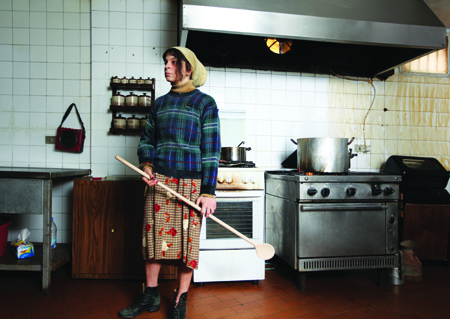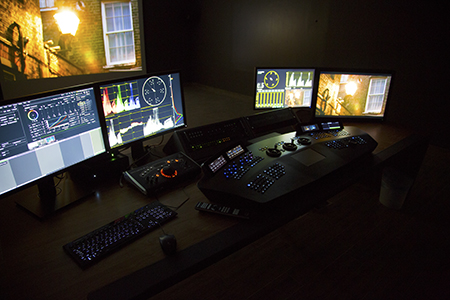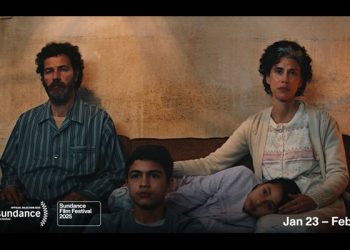The Du Tuesday ad campaign won the UAEs first ever Gold at the Cannes Lions International Festival of Creativity 2014. Executive Producer Manasvi Gosalia tells Vibhuti Arora about the groundbreaking success of the campaign It was a moment of glory for the UAE ad film industry when a homegrown ad campaign won a Gold Lion […]

The Du Tuesday ad campaign won the UAEs first ever Gold at the Cannes Lions International Festival of Creativity 2014. Executive Producer Manasvi Gosalia tells Vibhuti Arora about the groundbreaking success of the campaign
It was a moment of glory for the UAE ad film industry when a homegrown ad campaign won a Gold Lion at Cannes. It was the first time ever that a UAE commercial had struck gold at Cannes in the film category.
The win came as a long overdue breakthrough for the region. The Middle East had previously won on international platforms for print and outdoor campaigns, but the region had never won in the film category. This year was a glorious year with multiple wins for the region, with Ogilvy winning Titanium for integrated advertising while Impact BBDO won Gold for radio.
du Tuesdays Gold film wins were for Too Complicated and Too Depressing spots. These two films were a part of a series of four short films created by Leo Burnett, produced by Dejavu and directed by Ali Ali and Maged Nassar to promote dus Cinema Tuesdays. The films were nominated in the category Television & Cinema. Titled Too Complicated, Too Boring, Too Scary and Too Depressing, each of the four films belongs to a different film genre and evokes different human emotions.
“After winning three MENA Crystals, 23 trophies at Lynx, including the best production house and the Lynx Palm Award, we were quite confident that we had created something special and had a strong case at an international platform such as Cannes,” says Manasvi Gosalia, Executive Producer at Dubai-based production house Dejavu.
“It feels special to be in the spotlight and get noticed, not only on a global platform but also to be recognised locally. Nine out of 6,000 entries won a gold Lion at Cannes and we were one of them,” he adds.
It was a special campaign that culminated in the most special way, according to Gosalia.
The campaign
Dus Cinema Tuesdays offer two cinema tickets for the price of one and encourage cinema-goers not to see
films alone.
According to Gosalia, Leo Burnetts objective was clear create an insightful clutter-breaking campaign that makes waves globally and locally.
Dejavu was chosen to execute the project after a three way bid. The agency wrote the initial idea and was clear from the start that it wanted to work with well-known Egyptian director Ali Ali.
“We believed that Ali Ali was the right director to take this idea forward. He has a very interesting body of work and is one of the top directors in the region,” says Gosalia.
It took about six months to get the project off the ground, from paper to film.
“Few days before the production, the director suggested an interesting way of doing the production; Leo Burnett liked it, worked with us to develop the idea as a team and sold it to Du. Our client Ahmed Zeki of Du was brave in letting us shoot both sets of ideas the initial approved one and the new suggestion,” says Gosalia.
To achieve the agencys requirement of creating a clutter-breaker, four different moods were created in the films. The films had to have an element of surprise.
“The film, for a change, didnt require us to localise it. We didnt have to show any cultural references. That meant we could do what we wanted creatively,” comments Gosalia.
The shoot took place over the Christmas holidays in Lebanon. “We decided to shoot in Lebanon for several reasons. Firstly, we required those locations. We wanted snow and forests as the backdrop. Plus, they do have a good talent pool there. All in all, with the environment we wanted to shoot in, the availability of talent and considering its cost effectiveness, it made sense to shoot in Lebanon,” explains Gosalia.
The films have a totally different look and feel. For one, they do not have the colour and fast cuts that are typical of most commercials.
Leo Burnett was very clear in what they wanted and how they wanted this project to unfold.
The look was captured during the shoot on camera, so the art director had a key role here. The films were shot using ARRI Alexa, which came in handy in creating the look that the director wanted. The DoP and the director worked out the exact colour tones, based on which the wardrobe was planned and the mood was created. Too Depressing, for instance, has an Eastern European milieu and is clearly inspired by films from that region. Too Scary was shot in a forest to create the look and feel of a typical Hollywood horror flick.
Too Complicated
was a difficult concept to present. Its set in a room with three people speaking different languages at the same time, while Too Boring has two people sitting in a car doing nothing. The audience is initially intrigued by the film, and after 45 seconds comes the tag line that says its too boring or too complicated, or too scary, or too depressing to watch a film alone. A different one for each genre.
“There was not much required in terms of visual effects, it was more about realising the directors vision. Everything was shot on real locations. The same viewer at the end of each film reacts differently to each of the four genres shown,” comments Gosalia.
After filming in Lebanon the films were graded in Beirut and edited in Cairo. “We used Dejavu Lebanon for production and post production support. The films were edited on FCP and graded on Resolve. Yet in the end result the style of editing and grading is very different to that used more commonly. It is not saturated and colourful. Everything in terms of look, feel and the music score has the makings of a feature film,” he adds.
However, Gosalia points out that the tools didnt make these films but the concept did.
Shooting over the holidays was a challenge. It was not easy to get everyone together to pull the shoot through.
“As they say, the road to gold is never golden. Our experience on the shoot was everything but dull. While we were hard pressed for time, there were sprinklings of adventure too,” points out Gosalia.
The producer recalls: “There was also a bomb blast on the first day of our shoot. We had just picked up our art director and were barely 500m away from location.
“There was a major storm and torrential rain on the day of the shoot and we almost missed the production, but the rain happened to be a blessing in disguise because it gave us the foggy look that we were looking for. We were lucky that the rain stopped just before the shoot began.
“These were long shooting days, where wed start at 6am and end at 2am. One of the main reasons for shooting in Lebanon was the snow. The day we wanted to shoot we had no snow, so we got snow tankers to create artificial snow.
“But these are challenges that one takes in ones stride. In hindsight I feel every bit of it was worthwhile,” comments Gosalia.
Getting the right team to execute it was critical. Everyone had to be on the same page, so choosing the right people was important. The commercials ran for the first time in cinemas in January 2014.
“We decided to enter the campaign for nominations at Cannes Lions because of the success we had with it at Lynx. It was a big collective effort. We pitched in together and won together.
“Two days before the awards the Cannes Lions jury shared the shortlist with us. It was surreal. We were competing against countries that have a huge appetite for such ads and they invest millions. They take risks and have no creative restrictions. We work within a culturally sensitive region, and so to compete against such established entities and still win is a huge win for the region as a whole.
“Television is difficult to win because the works that come out of the US and Europe are mostly big-budget, one to two million dollar projects. To work with a quarter of that budget and still win a gold is hugely inspirational, not just for our company but also for the entire region,” concludes Gosalia.







































































